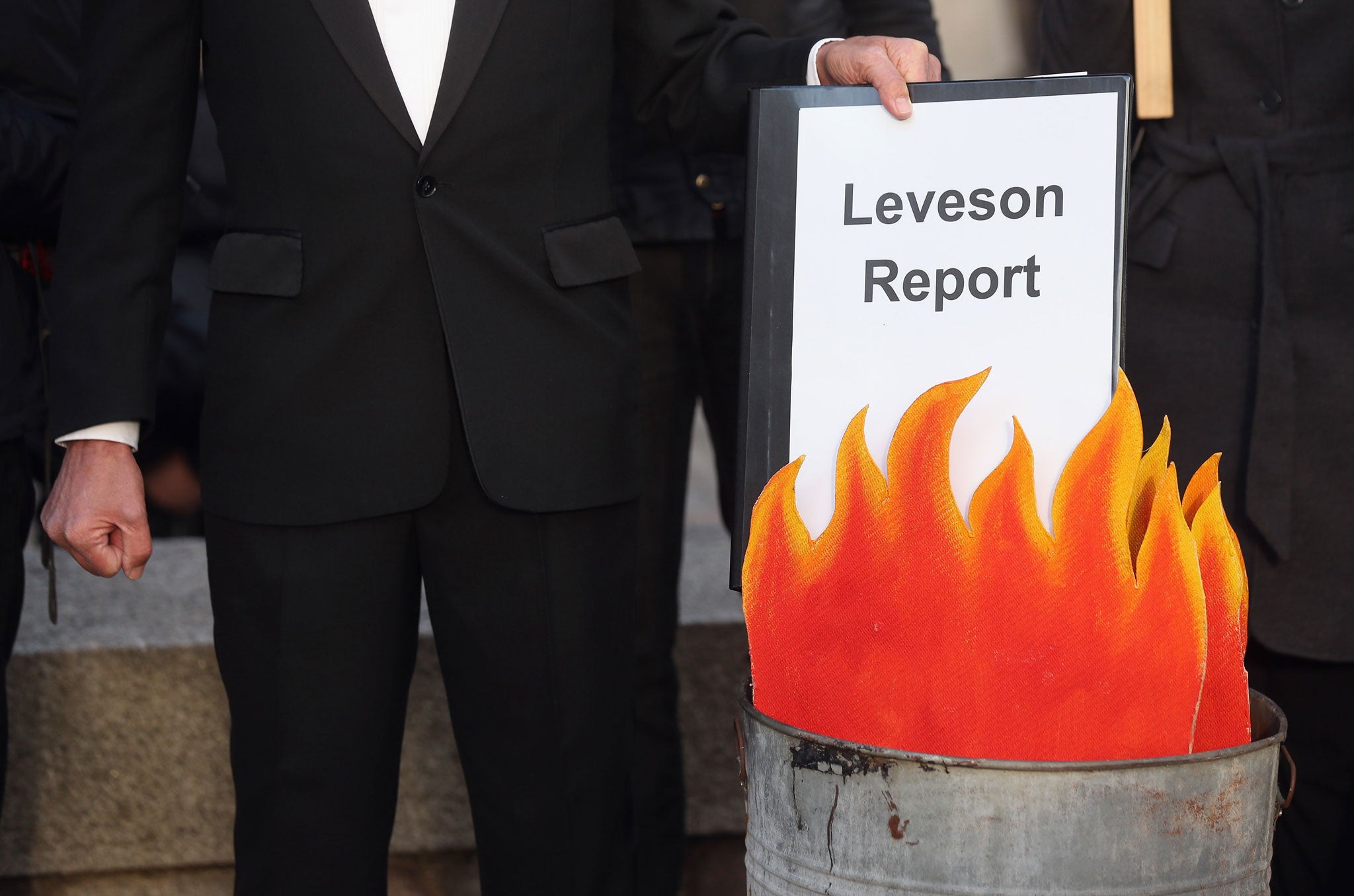Let's give all crimes the Leveson treatment
They had to get a Lord Justice to do it. Anyone normal would have yelled, “You did WHAT? Are you competing with Savile for the Sicko Personality of the Year Award?”


As newspapers and politicians debate how to respond to the Leveson Report, the one certainty is that it was such a success it should now be the method used for any group caught in an act of serial criminality. Bank robbers, for example, should no longer have to face a trial that might be all over in a few weeks.
Instead, Lord Justice Leveson should hold an inquiry in which he looks down at his notes, leans back, then says mildly, “Do you recall the meeting, on 9 March 2008, in which you supplied Fat Nobby with a box of sawn-off shotguns?”
“I don’t recall that meeting, no. I very rarely speak to my gangsters,” the witness will say. “On 2 April,” the Lord Justice will continue, “you made a payment of £30,000 to World of Corpses, that operates under the slogan, ‘If they snitch, they’ll turn up in a ditch’. Can you tell me why you wrote that cheque?” “Can’t remember”, the witness will say.
Then Lord Justice Leveson will thank the witness for his co-operation and 18 months later he’ll compile a 2,000 page report full of phrases like, “While it may be beneficial for armed robbery to be constrained within the limits of bullets employed as per the guidelines outlined by the self-regulating body, the Reasonable Heist Association, I feel there is a requirement for legislation in certain quarters to require robbers not to blast civilians through the head.”
Then the robbers can say, “Thanks for your efforts, Lord Justice, but we’d rather take no notice. After all, we’re the experts on bank robbery so I think we’re the ones who know best what should and shouldn’t be robbed.” Then everyone can carry on as normal.
It’s easy to see why they had to get a Lord Justice to compile the report, because anyone normal would have yelled, “You did WHAT? You HACKED into murdered people’s phones? Are you competing with Savile for the Sicko Personality of the Year Award, you maniac?”
Legislation would probably make no difference, as there was already legislation, and the police claimed they “left no stone unturned” in investigating the crimes. This turned out, if you looked closely, to be subtly different from the truth, which is that they hadn’t even opened the sacks of evidence. So the argument seems to revolve around whether there should be a new set of laws for the police to ignore. The police, quite reasonably, say, “We’ve got enough to do as it is ignoring all the old laws, without having to ignore a new lot on top.”
So the hacking, illegal payments, influence of Murdoch over governments and other problems have been created by three groups – the press, the police and the politicians. And the argument they’re having now is whose responsibility it is to bugger it up from now on, until the next inquiry when one of them gets caught.
Join our commenting forum
Join thought-provoking conversations, follow other Independent readers and see their replies
Comments
Bookmark popover
Removed from bookmarks